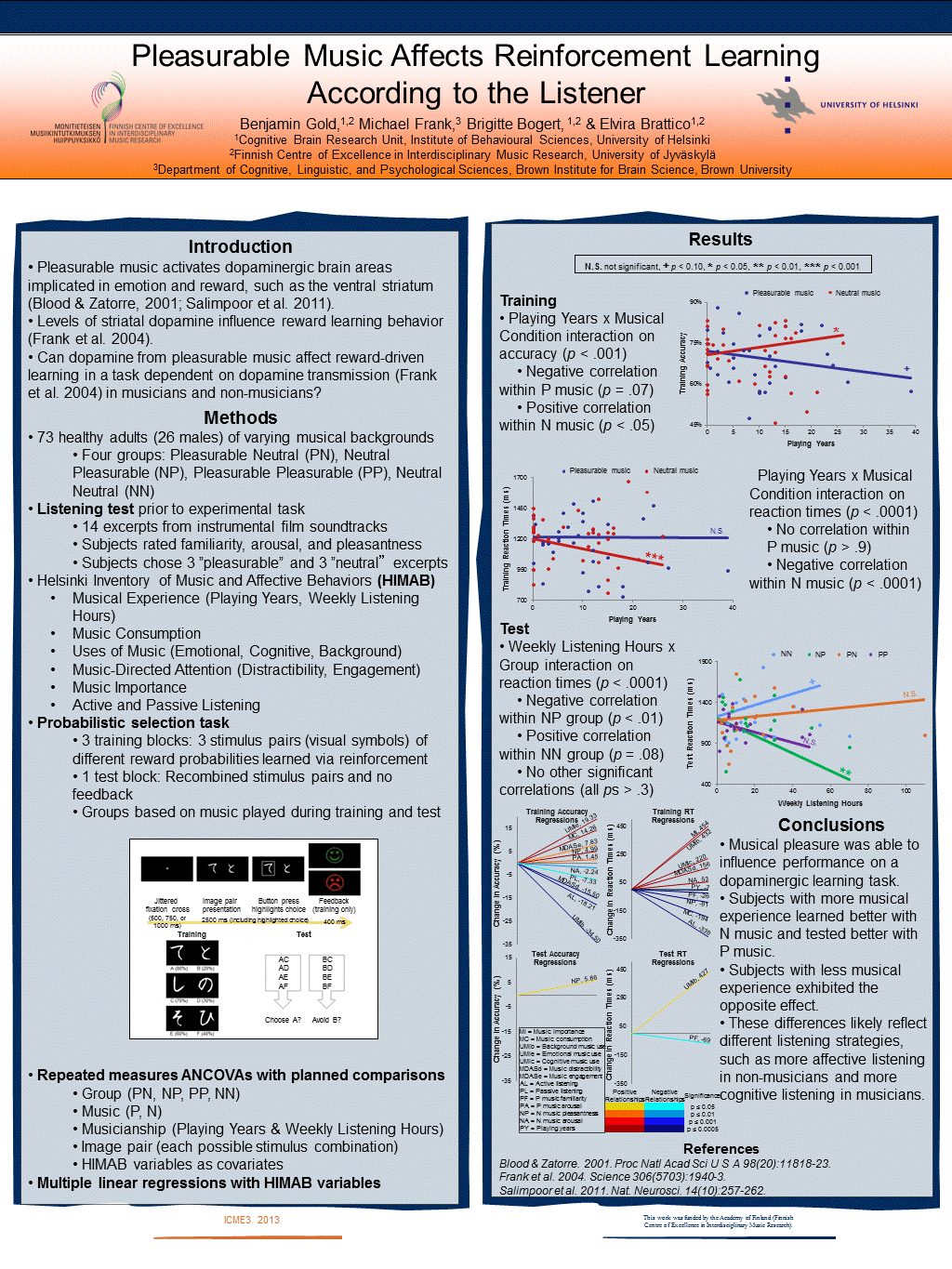Click on the image for a larger version
This is a really fascinating study - it took me a while to work out and explain exactly what was going on - but bear with me - 'cos the results are super interesting. This is from the Neuroaesthetics of Music Group up in Helsinki Finland. 73 subjects were tested using an FMRI to look at what's happening in the brain!
Click on the image to the left for a bigger version but I suggest you come back and look at it after reading the explanation underneath:
Three things you need to hold in your head:
Thing 1:
This is a basic learning test - where the subjects are presented with a pair of symbols and they are trained to select and remember the correct one. They get three rounds of training and feedback is given with either a smiley or a frowny face. After training, they are given a test and are scored on how many they get right.
Thing 2:
Before the testing, the subjects are given 14 pieces of music which they self select into 3 pieces of "neutral" music and 3 pieces of "pleasurable" music. They also answer a series of questions about their personal musical experiences.
Thing 3:
This is the fun bit - while the subjects are doing the learning and the testing - they are being played either neutral music or pleasurable music (self identified remember?) This enables the researchers to test the effect of different music types on learning behavior and to match it against musical experience - genius!
OK - so you've got those three things in your head - now let's look at the results.
Results
Seems that if you're someone with a lot of musical experience - you learn better when listening to neutral music - but you test better when listening to pleasurable music.
If you're less musical - you learn better with pleasurable music, but you test better with neutral music - the complete opposite.
That's pretty interesting! The researchers propose that this is due to different listening strategies between the two groups which would make sense - but what does that mean?
I reckon that as a musician I'm naturally more attuned to devote mental resource to music than a non-musician and I'm likely to devote even more resource to music that I like. So - when I'm learning something - when I'm forming neural pathways and connections - I want as much resource made available to me as possible - so - neutral music is better. However - when I'm testing - which is more about recall and memory than it is about building - then I want to feel good - I want to juice my system - so - even though I might lose some resource by listening to music I like - I feel significantly better - which impacts and improves my test performance.
As a non-musician - the difference between resource allocated to neutral or pleasurable music is probably a lot less, so when it comes to learning - the "feel good" factor of pleasurable music seems to outweigh the resource cost. However - when it comes to testing - it might be that the resource cost of pleasurable music may become distracting and outweighs the feel good factor.
Who knows?
I think this kind of research and study is amazing and could lead to massive changes in how we learn and perform and the role of music within that process. You go Helsinki!
Thousands of people use music2work2 to get more productive, sign up for free
Written while listening to: God Knows Violas - Essay Writing Music

